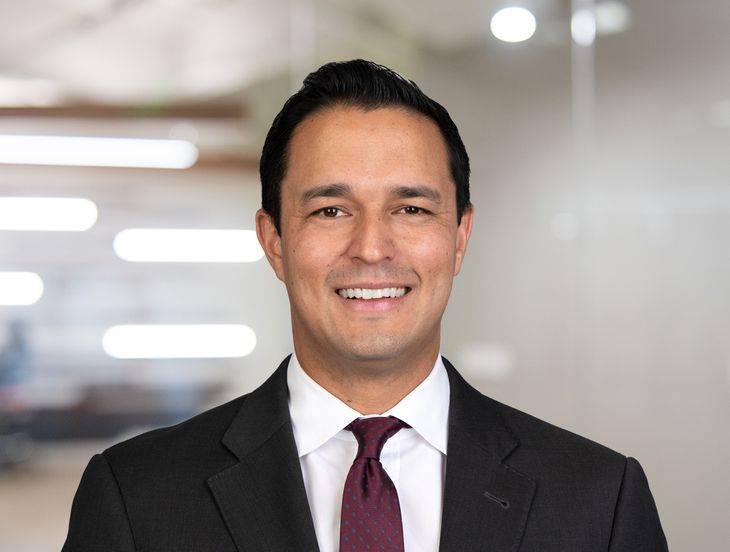The Top 18 Workplace Law Stories from March 2022
Insights
4.06.22
It’s hard to keep up with all the recent changes to labor and employment law. While the law always seems to evolve at a rapid pace, there have been an unprecedented number of changes for the past few years—and this past month was no exception. In fact, there were so many significant developments taking place during the past month that we were once again forced to expand our monthly summary well beyond the typical “Top 10” list. In order to make sure that you stay on top of the latest changes, here is a quick review of the Top 18 stories from last month that all employers need to know about:
- OSHA Targets Unlikely Suspects in 2022: Top 5 Employer Takeaways as Fisher Phillips Unveils OSHA Inspections Tracker
Just because you aren’t a large employer in the construction or manufacturing field, 2022 may be shaping up as the year that you get visited by a federal workplace safety inspector. That’s according to the nation’s first OSHA Inspections Tracker map, just unveiled on March 8 by the Workplace Safety and Catastrophe Management team at Fisher Phillips and created by our Knowledge Management and Technology teams, allowing employers to examine the up-to-the-minute state of workplace safety inspections in a detailed manner. By clicking here and maneuvering around the map and accompanying data lists, you can determine the likelihood of your business being visited by OSHA inspectors based on your location, industry, and company size. It’s just the latest innovative offering from the firm that recently won the Law Firm of the Year Award at the 2021 American Legal Technology Awards. What are the five biggest takeaways for employers upon examining the FP OSHA Inspections Tracker?
- 4 Employer Takeaways – and Predictions – from Biden’s State of the Union Address
During the first State of the Union address with both houses of Congress present since the pandemic began, President Biden made brief references to his ambitious workplace law agenda on March 1, touching on several labor and employment topics that he has prioritized over the past year. But given the Democrat’s razor-thin Senate majority, the chilling effect of several moderate Democratic senators who have blunted several of his grander plans, and the possible evaporation of congressional control with the upcoming midterm elections – not to mention the crises at home and abroad that will occupy his attention – how realistic are these proposals? This Insight will review the four most significant labor and employment initiatives raised by the president during the State of the Union (SOTU) address, along with our predictions assessing the likelihood of their coming to fruition.
- OSHA Again Proposes that Employers Electronically Submit Workplace Injury Forms
Federal workplace safety officials are once again proposing amendments to occupational injury and illness recordkeeping rules that would require certain employers to electronically submit injury and illness information to OSHA. Employers are already required to keep such records under the existing recordkeeping regulation, but the March 28 announcement would increase employer obligations by a dramatic degree. What do employers need to know about OSHA recordkeeping and the new proposed amendments, which was formally released on March 30?
- Russo-Ukrainian War Could Have an Unexpected Impact on American Businesses: An Employer’s Guide to a Growing International Crisis
As the Russo-Ukrainian war continues with a rising death toll and international sanctions, citizens and businesses around the world are reeling at the impact of this devastating crisis. For many workers and businesses both inside and outside the war zones, this may be their first time dealing with side effects of war. Businesses in the United States will soon feel the ripple effects if they haven’t already – in the form of expanded immigration options, possible workforce conflicts or disruption, and cyberthreats. And if any of your workers have connections to Ukraine, you also have a responsibility to support them by demonstrating an element of compassion and offering crucial resources. What should American businesses know about the Russo-Ukrainian war and what specific steps should you consider?
- Top 10 Takeaways as OSHA Sets Sights on Permanent COVID-19 Standard for Healthcare Settings
Federal workplace safety authorities just announced that they are accepting additional comments regarding a final permanent standard that will address COVID-19 exposure in healthcare settings. According to the March 22 announcement from the Occupational Safety and Health Administration (OSHA), written comments must be submitted no later than April 22 and the agency will conduct an informal virtual public hearing on April 27. When finalized, the permanent standard would affect not only a wide range of healthcare employers, but also those companies with employees working in covered healthcare settings. Here are the top 10 takeaways you can take from this announcement.
- The Great Unmasking? California Relaxes Masking Requirements Regardless of Vaccination Status
In the surest sign that COVID-19 restrictions are moving to the rearview mirror once and for all, California has just relaxed its face covering requirements, regardless of vaccination status in most settings – and for most workplaces. The new mask requirements announced yesterday generally provide that face coverings do not need to be worn any longer, regardless of vaccination status. While this is welcome news to many, employers need to remember that more restrictive local orders still control, and some businesses may choose to continue masking regardless of vaccination status.
- “Do Speak!” No Doubt that Washington Employers Must Rethink Nondisclosure Agreements Given Sweeping New Law
Washington employers are already prohibited from using employment agreements that restrict workers from disclosing claims of workplace sexual assault and sexual harassment – but will soon be unable to use nondisclosure agreements encompassing nearly all common employment claims and all employment agreements, including settlements. Governor Inslee signed Washington's Silenced No More Act into law in March 24, replacing a 2018 law that only covered claims related to the #MeToo movement. Effective June 9, Washington employers will be subject to a sweeping new law more closely following California’s similar law, causing most businesses to take immediate action to come into compliance.
- Hospitals, Skilled Nursing Facilities Targeted for COVID-19 Scrutiny – 5 Steps to Help Ensure You are Ready for Federal Initiatives
For the second time in a week, key members of the healthcare provider community were the focus of an announcement promising more pandemic-related scrutiny from a federal agency. The Occupational Safety and Health Administration (OSHA) recently announced an enforcement memorandum changing its COVID-19 Inspection Targeting from general industry and healthcare to primarily focusing on hospital and skills nursing care facilities that treat or handle COVID-19 patients. OSHA’s aggressive effort, announced on March 8, follows the previous week’s presidential plan to set minimum staffing requirements for nursing homes and to prevent room overcrowding in an effort to reduce the spread of infectious diseases such as COVID-19. What are the five most important things you could be doing to ensure you are ready for the spotlight being shined in your direction?
- Batter Up! An Employer’s Winners-and-Losers Guide to the End of Baseball’s Lockout
We were off by about 10 days. When we published An Employer’s Guide to the Baseball Lockout: Answering Your Questions About the First MLB Work Stoppage in Almost 30 Years way back at the beginning of December, we predicted the two sides would forge a compromise by the end of February, spring training season would be shortened by a few weeks, and the regular season would start on time on March 31. With the March 10 news that the lockout is officially over after 99 days, we now know that we’ll have a full 162-game schedule to look forward to in 2022. Before you start scouting the team rosters and preparing for your fantasy draft, it’s time to take a look at the final agreements reached on the most significant issues in the final collective bargaining agreement (which is good through the 2026 season) and give our take on the winners and losers.
- Federal Wage and Hour Officials Set Their Sights on Retaliation Investigations
The new leadership of the Department of Labor has strongly signaled its intent to pursue employers for claims of retaliation – which means that employers need to beef up their compliance initiatives to avoid committing a violation. On March 10, the Department of Labor’s Wage and Hour Division issued an enforcement directive to its regional and district offices that confirms the agency’s commitment to the retaliation initiative. What do you need to know about this development and what should you do to prepare?
- USCIS Announces New Effort to Speed Case Processing and Eliminate Backlogs
Federal immigration officials just announced concrete measures to reduce the massive backlog of petitions and applications currently pending at the agency’s National Service Centers. The March 29 announcement from U.S. Citizenship and Immigration Services (USCIS) is welcome news for employers eager to bolster their workforces and introduce some certainty during a turbulent time and a workforce shortage crisis. What do you need to know about this development – and what should you do as a result?
- Regulation is Coming for Crypto: What Biden's EO Means for Your Business
President Biden signed an Executive Order on March 9 directing several federal agencies to begin focusing their efforts on the growing cryptocurrency field – a development that will surely lead to further mass adoption by ordinary Americans and amplify the need for businesses to adopt their own cryptocurrency policies and practices. The March 9 Executive Order on Ensuring Responsible Development of Digital Assets and accompanying fact sheet outline a coordinated effort he expects federal regulators to undertake, including whether the U.S. should launch its own digital currency. What do businesses need to know about this significant development and what should you do to effectively position your organization?
- Federal Employee Benefits Investigators Announce Plan to Scrutinize 401(k) Cryptocurrency Investments
While some employees and retirees have been asking to have cryptocurrencies included in their 401(k) retirement plans, federal authorities recently issued a strong and direct warning that such a plan might run afoul of existing standards and that “extreme care” should be exercised before adding a cryptocurrency option to a 401(k) plan’s investment menu for plan participants. While the Employee Benefit Security Administration’s (EBSA) guidance is not an explicit ban, the agency makes clear that fiduciaries who are considering including cryptocurrencies within 401(k) menu options will need to conduct a thorough evaluation before offering crypto – and should expect an EBSA investigation if they decide to include such an offer. What do employers need to know about the March 10 guidance and what should you do if you are considering – or have already set up – a cryptocurrency-based 401(k) program?
- DOL’s Proposed Revisions of Davis Bacon Act Rules Will Have Significant Impact on Federal Construction Contractors
Federal wage and hour officials recently issued proposed rules that will make it easier for unions to have their hourly rates of pay established as the prevailing wage rates and will increase the Department of Labor’s enforcement authority to punish and debar contractors, particularly for claims of retaliation – proposals that are being billed by the Department of Labor as “the most comprehensive review of Davis-Bacon Act regulations in 40 years.” The DOL Wage and Hour Division’s March 11 Notice of Proposed Rulemaking will apply to contracts and subcontracts who perform construction, alteration, or repair work that is covered by the Davis Bacon Act or any of the dozens of Davis Bacon-Related Acts. The timing of the proposed rules is not coincidental, as the federal government is turning the faucet of Davis Bacon Act spending on full blast under the trillion dollar Infrastructure Bill. What do contractors need to know about this monumental development?
- Washington State Rideshare Businesses Achieve Historic Compromise to Guarantee Wages in Exchange for Contractor Status
In a groundbreaking move that gig economy companies hope to be mimicked across the country, Washington just enacted a new state law that guarantees minimum per-trip pay rates, paid sick leave, and workers’ compensation benefits for rideshare drivers in exchange for a guarantee that the workers are classified as independent contractors. The compromise was the result of a deal struck between companies and an advocacy group supporting rideshare drivers. By signing HB 2076 (aka the “Expand Fairness Act”) on March 31, Washington governor Jay Inslee created a California Prop 22-like solution that provides the needed flexibility sought after by gig businesses (and workers) while also offering a social safety net for workers that will enable them to perform gig work on a full-time basis if wanted.
- NYC Issues Guidance on Salary Transparency Law: 5 Key Takeaways for Employers
New York City employers need to disclose the expected salary range on internal and external job listings starting on May 15 due to a salary transparency statute enacted by the City earlier this year. While the statute left many questions unanswered for employers, the New York City Commission on Human Rights (NYCCHR) recently issued guidance on the impending disclosure requirement in the form of a fact sheet. Here are the top five key takeaways from the March 22 guidance for NYC employers.
- Indiana Employers Should Remain on Guard as Governor Holcomb Ends COVID-19 State of Emergency
Indiana recently joined a growing number of states that have rescinded their COVID-19 states of emergency while also enacting new pandemic-related legislation – but employers shouldn’t completely let down their guard just yet. Indiana Governor Eric Holcomb first declared a COVID-19 a public health emergency on March 6, 2020. Almost two long years later and after over 20 renewals, Governor Holcomb rescinded that order on March 3, ending Indiana’s state of emergency status. Across the Ohio River, Kentucky’s state of emergency will likewise lapse in April 2022, unless renewed. What do employers need to know about this encouraging development?
- Tennessee Closes the Loop on Workplace Vaccine Mandates
Do you have a mandatory vaccination policy? Are you exempt from Tennessee’s COVID-19 vaccine protection law because you’re a federally regulated company, healthcare provider governed by the U.S. Centers for Medicare & Medicaid Services (CMS) vaccine mandate, or a federal contractor or grant recipient? If so, you are likely covered by new Tennessee legislation that further expands protections for workers subject to workplace vaccine mandates. The new law, which went into immediate effect on March 11 and amends and supplements the state’s previous COVID-19 legislation – also known as Title 14 – brings Tennessee employers who are exempt from other provisions of Title 14 into the loop by requiring religious and medical exemptions and prohibiting retaliation against employees and applicants who request or receive exemptions. Although these new restrictions are potentially significant, they apply only to employers not otherwise covered by Title 14. If you are already covered by the provision of Title 14 prohibiting you from compelling your employees provide proof of vaccination, there’s nothing new to see here. If not, keep reading for our assessment of the new amendments and how they may impact your ability to impose vaccination requirements.
We will continue to monitor developments related to all aspects of workplace law. Make sure you are subscribed to Fisher Phillips’ Insight system to get the most up-to-date information. If you have questions, contact your Fisher Phillips attorney.
Related People
-
- George D. Adams
- Partner
-
- Nazanin Afshar
- Partner
-
- Phillip C. Bauknight
- Partner
-
- Cheryl L. Behymer
- Senior Counsel
-
- Kathleen McLeod Caminiti
- Partner and Co-Chair, Wage and Hour Practice Group
-
- Melissa Camire
- Partner
-
- Collin D. Cook
- Partner
-
- Brian J. Coughlin
- Partner
-
- Patrick M. Dalin
- Partner
-
- Alex G. Desrosiers
- Partner
-
- J. Micah Dickie
- Partner
-
- Benjamin M. Ebbink
- Partner
-
- Abby H. Putzulu
- Associate
-
- Marilyn Higdon
- Associate
-
- Nicholas S. Hulse
- Partner
-
- Courtney Leyes
- Partner
-
- Todd B. Logsdon
- Partner
-
- Todd A. Lyon
- Partner
-
- Danielle H. Moore
- Partner
-
- Howard A. Mavity
- Partner
-
- Richard R. Meneghello
- Chief Content Officer
-
- Catharine Morisset
- Partner
-
- Cheryl Pinarchick
- Senior Counsel
-
- Robert M. Robenalt
- Partner
-
- Adam F. Sloustcher
- Regional Managing Partner
-
- Hannah Sweiss
- Partner
-
- A. Kevin Troutman
- Senior Counsel
-
- Travis W. Vance
- Regional Managing Partner
-
- Ivy Waisbord
- Associate
-
- Megan C. Winter
- Partner
-
- Connie Yang
- Partner
Service Focus
- Affirmative Action and Federal Contract Compliance
- Privacy and Cyber
- Employee Benefits and Tax
- Employee Leaves and Accommodations
- Employment Discrimination and Harassment
- Immigration
- International
- Labor Relations
- Litigation and Trials
- Pay Equity and Transparency
- Wage and Hour
- Workplace Safety and Catastrophe Management






























